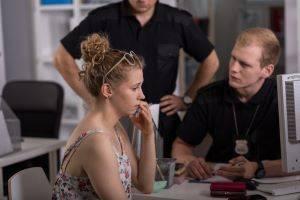 When a person faces criminal charges, a prosecutor will present evidence that is meant to show that they are guilty beyond all reasonable doubt. This would seem to be a high standard that ensures that a person will only be convicted if there is no uncertainty about whether they actually committed the crime they are accused of. Unfortunately, the reality in many criminal cases is much different, and people are often convicted based solely on the testimony of eyewitnesses. While people’s observations may seem to be reliable, studies have shown that there are many factors that can affect what a witness sees and remembers, and as a result, many people have been wrongfully convicted.
When a person faces criminal charges, a prosecutor will present evidence that is meant to show that they are guilty beyond all reasonable doubt. This would seem to be a high standard that ensures that a person will only be convicted if there is no uncertainty about whether they actually committed the crime they are accused of. Unfortunately, the reality in many criminal cases is much different, and people are often convicted based solely on the testimony of eyewitnesses. While people’s observations may seem to be reliable, studies have shown that there are many factors that can affect what a witness sees and remembers, and as a result, many people have been wrongfully convicted.
“You don’t remember what happened. What you remember becomes what happened.” -John Green
Most people trust what they see, and because of this, they will believe witnesses who report that they observed a crime and can identify a suspect. However, many people do not realize how unreliable witnesses’ memories actually are. Scientists who have studied these issues report that there are many reasons why people may fail to properly recall what they believe they saw, and they often involve uncertainty and bias.
Uncertainty about what was seen can occur due to a variety of factors. The viewing conditions, such as the person’s distance from what they were observing, the lighting in the area, the amount of time they saw a suspect, and any shadows, glares, reflections, or visual obstacles, may have affected a person’s ability to see properly. Distractions such as loud noises may have been present, or a person’s mental state at the time may have affected their memory of the event.
When people are uncertain about what they saw or experienced, they will often fill in the gaps based on their biases, even if they are unaware that they are doing so. Based on their prior experiences and beliefs, they may believe that they remembered something that did not actually happen, or they may incorrectly identify a suspect based on prejudices about race or other factors.
Unfortunately, the criminal justice system is prone to manipulation of witness testimony. In many cases, police officers’ own biases play a role in the identification of suspects. When presenting photos of potential suspects to witnesses or asking them to identify a person in a lineup, officers may purposely or inadvertently influence witnesses through behavior indicating the person that they believe was the perpetrator. Witnesses may also be influenced by the options presented to them, such as if the suspect they are asked to identify has a different height, build, or facial features than others in a lineup or group of photos.
When confirming their observations or memories, witnesses often have a great deal of confidence. Because of this, testimony from eyewitnesses is often presented in a trial as if it is concrete evidence without any uncertainty. However, nearly 70% of convictions that have been overturned based on DNA evidence were originally based on mistaken identifications by witnesses.
If you have been charged with a crime, you will need an experienced attorney on your side who can challenge the evidence presented by the prosecution. At the Woolf & Ross Law Firm, LLC, we will identify the inconsistencies and uncertainties in witness testimonies, and we will fight to make sure you are not wrongfully convicted based on the biases of witnesses or law enforcement officials. To get the defense you need, contact our Hartford, CT criminal defense lawyer at 860-290-8690 and schedule your free consultation today.
Sources:
https://thecrimereport.org/2021/05/24/witnesses-are-often-wrong-the-case-against-eyewitness-id/
https://www.pnas.org/content/114/30/7758
 50 Founders Plaza
50 Founders Plaza

